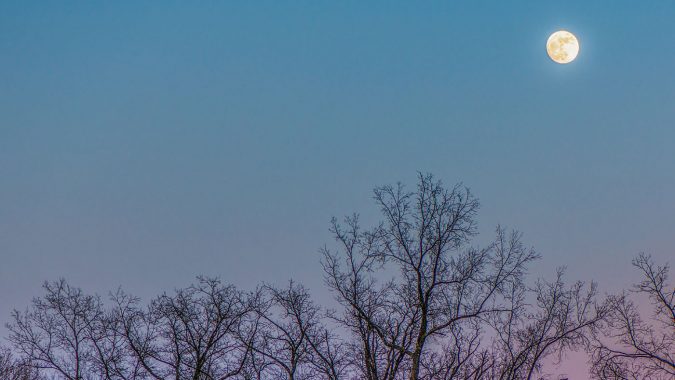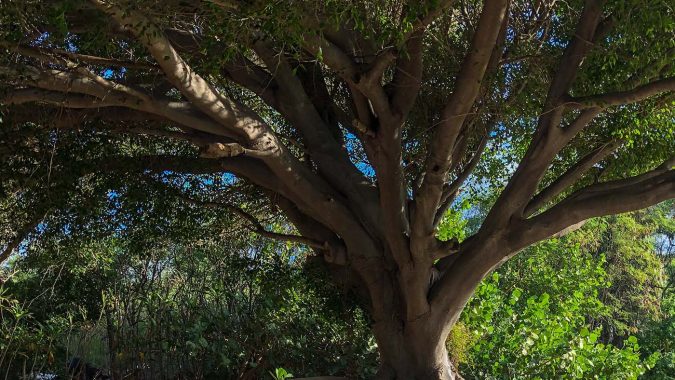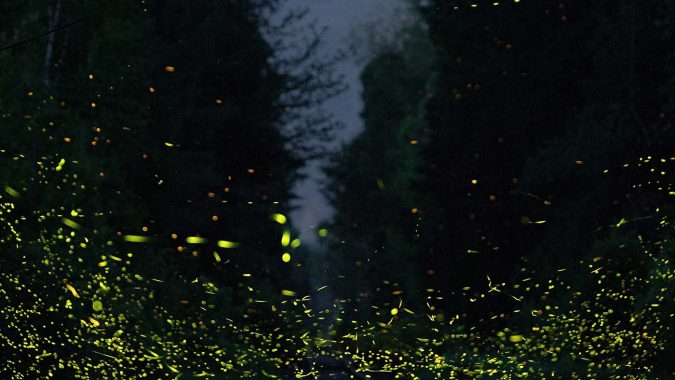
The Buddha-essence is ever-present in everyone because the dharmakaya [Sanskrit: "truth body" or "reality body"] of perfect Buddhahood pervades all, the suchness is undifferentiated and they have the potential.
Uttaratantra
The Buddha taught that each and every being, in all the realms of samsara (the suffering-laden and continuous cycle of life, death and rebirth), has the potential to attain enlightenment, thus possessing an innate “Buddha nature.” The Sanskrit terms related to Buddha nature are Tathagata-garbha, Tathagata-dhātu and Buddha-dhātu.
Tathāgata-garbha combines Tathāgata, a term the Buddha used to refer to himself, and garbha, meaning “womb,” “embryo” or “essence.” In turn, Tathagata – based on the root tathatā, denoting the ineffable, essential nature of reality – means one who is “thus gone” from samsara to nirvana (ultimate liberation), or “thus come” from nirvana to samsara to work for the liberation of all sentient beings.
The compound terms Tathagata-dhātu and Buddha-dhātu join the names of the Buddha (the enlightened one) with the Sanskrit word dhātu, which can be translated as “element,” “principle,” “realm,” “source” or “matrix.”
Our innate Buddha nature is intrinsically untainted, or can be purified: Examples given in the scriptures liken it to gold, a noble metal that resists degradation; water, which if polluted can be cleansed; and the sky, which is perpetually clear beneath the veil of clouds. Although, as Master Cheng Yen explains, while this pure “embryonic Buddha” exists within every being, it is obscured by negativities:
Our heart and mind were originally very pure; the Buddha nature is our true original nature. But, over the course of time, we’ve drawn away from our Buddha nature as afflictions, delusions, and impurities arose within. The Buddha reminds us, however, that our Buddha nature is never fully lost; it has merely been blocked or pushed very far away.
The point of spiritual practice, then, is to return to our innate Buddha nature:
Our practice is to use the Buddha’s teachings to overcome these afflictions, delusions, and impurities, and gradually bring our heart and mind back to its original pure state.
Buddha nature is described as inalterable, unchanging, indestructible and eternal, an “inexhaustible abode containing gems of inestimable qualities,” or a hidden jewel. In the Mahaparinirvana or Nirvana Sutra, it is compared to a treasure buried beneath the house of a pauper that he is unaware of, but awaits discovery. Through his teachings, the Buddha reveals how we can uncover the treasure, sometimes called the “luminous mind.” Such instruction is vital on the spiritual path:
Luminous, monks, is the mind. And it is defiled by incoming defilements. The uninstructed run-of-the-mill person doesn't discern that as it actually is present, which is why I tell you that – for the uninstructed run-of-the-mill person – there is no development of the mind.
Luminous, monks, is the mind. And it is freed from incoming defilements. The well-instructed disciple of the noble ones discerns that as it actually is present, which is why I tell you that – for the well-instructed disciple of the noble ones – there is development of the mind.Pabhassara Sutta [Anguttara Nikaya]
But, we shouldn’t correlate this luminous mind, or absolute Buddha nature, with the individual ego, or “mundane, conventional self,” taking heed of the teachings on emptiness and the non-existence of Self, which lead toward the right understanding:
The Tathagata [Buddha] first taught people to cultivate the notion that all phenomena are devoid of a Self, in order to encourage and train them. When they have cultivated non-Self, they eliminate the false view of the Self. Having eliminated the false view of the Self, they enter Nirvana. I have taught non-Self in order to eradicate the mundane/ conventional self. Subsequently, I teach the Tathagata-dhatu with skillful words of implicit intent. This is called the True Self, which is divorced from the mundane...
Mahaparinirvana Sutra [Nirvana Sutra]
Master Cheng Yen reveals another aspect of spiritual cultivation, helping us realize that just as the Buddha sees our “True Self,” we too should strive to have such pure vision, instead of finding fault in others and feeling superior because of our dharma practice.
It’s often hard to see the Buddha nature in others and easy to lose faith in them, especially when it seems as if they just keep repeating their mistakes no matter how many times we’ve spoken to them about it. It can be very frustrating and upsetting to think that they refuse to listen.
But, is that true? Perhaps they do want to change; it’s just that their habits are so ingrained that changing isn’t a quick process. Though on the surface, it may look like they haven’t taken in anything we’ve said, it’s really just that they’re gradually making changes and the changes made so far aren’t yet very noticeable.
When we become upset at the thought that a person hasn’t changed, afflictions and unwholesome thoughts fill our mind. In that moment, we’re moving farther away from our Buddha nature. With regards to the people we’re exasperated with, they’re moving closer to their Buddha nature as they work on their unwholesome habits. Yet we, in becoming upset with them, are accumulating afflictions and have widened the gap that lies between us and our own Buddha nature.
Therefore, it would be better for us to try and see the Buddha nature in people and keep in mind that habits take time to change. Since our goal is to return to our Buddha nature, we should learn to practice the kind of sincere and all-embracing love that the Buddha has.
Knowing the suffering that living beings have created out of ignorance and delusion, the Buddha is committed to guiding all living beings and does not give up on anyone. This is the love of a Buddha and the love that we, in possessing the Buddha nature, are inherently capable of. If we can learn to look at everyone with the eyes of a Buddha, we will understand that no one is beyond hope.
The sections in italics consists of material compiled into English by the Jing Si Abode English Editorial Team, based on Dharma Master Cheng Yen’s talks.
































